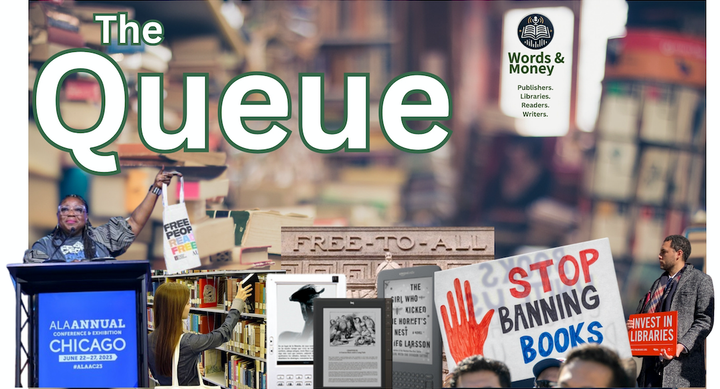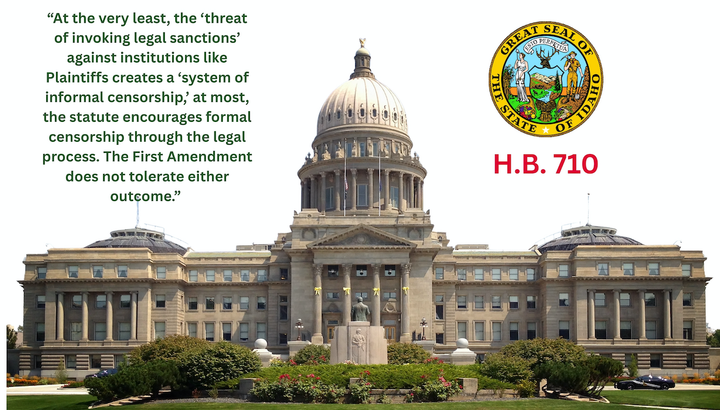The Queue: Library News for the Week Ending September 12, 2025
Among the week's headlines: the legal battle over the IMLS continues, with good news from the U.S. Court of Appeals for the First Circuit; Baker & Taylor has been acquired; more bad news on the state of reading in America; and the acclaimed documentary, The Librarians, is getting a wide release.
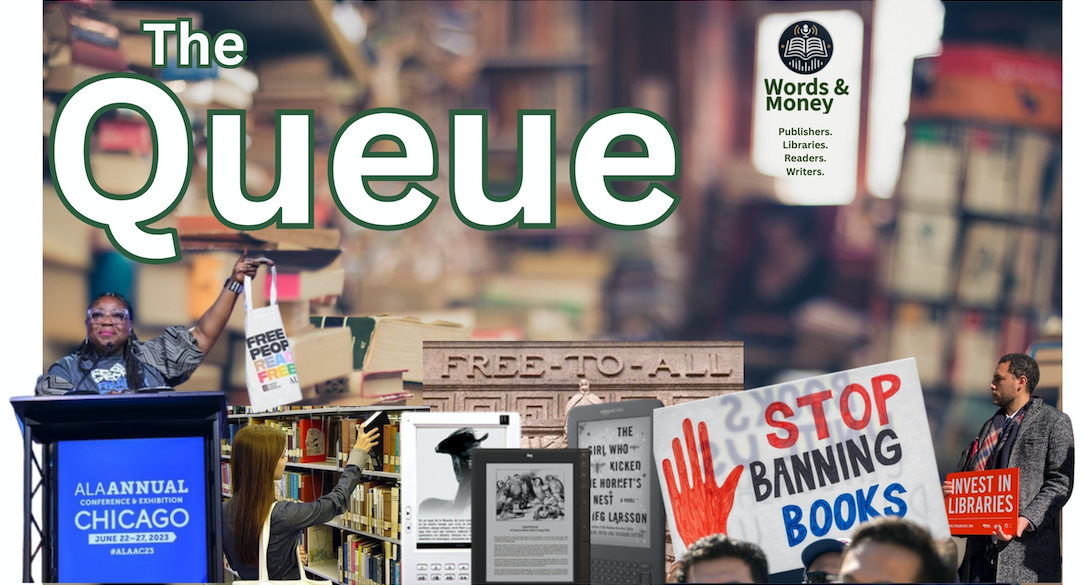
The legal battles to save the IMLS continue, but with some good news this week from the U.S. Court of Appeals for the First Circuit, which, on September 11, denied the government's motion to stay Judge John J. McConnell's preliminary injunction blocking the administration's efforts to dismantle the agency by executive order.
The DOJ is still appealing the injunction itself, but the ruling means that McConnell's injunction will stand, and the IMLS will remain, pending the outcome of that appeal.
"While the appellants have established the possibility of some limited irreparable harm to themselves from the District Court's preliminary injunction, they have failed to (1) make a strong showing that they are likely to succeed on the merits of
their appeal, (2) show that other parties interested in this litigation would not be substantially injured were we to issue the requested stay, or (3) show that the issuance of a stay is in the public interest," the order reads. "We thus cannot conclude that the mere possibility of some limited irreparable harm to the appellants warrants the issuance of a stay. The motion for a stay is denied."
Meanwhile, in a rather odd filing, the DOJ on September 9 filed a motion asking McConnell for a hearing over a 300-page statement of undisputed facts the plaintiff states submitted with their August 22 motion for summary judgment. The reason? The DOJ wants its stricken, because it's too long and contains too many facts.
"Plaintiffs’ Statement includes 1,288 paragraphs, extending over 295 pages. Defendants submit that, at that volume, Plaintiffs’ Statement cannot comply with the requirement under the local civil rules that such a submission 'concisely set forth all facts that the movant contends are undisputed and entitle the movant to judgment as a matter of law,'" the DOJ filing argues.
Should the court not agree to limit or strike the filing, DOJ lawyers are asking for an additional four weeks to respond to the filing.
But in a September 11 reply, attorneys for the plaintiff states offered a sharp rejoinder. "The length of Plaintiffs’ Statement merely reflects the magnitude of Defendants’ unlawful acts," the filing states. "The Defendants must now admit these facts or else identify evidence on the record to dispute them. What the Defendants cannot do is evade the facts by complaining there are too many of them."
Meanwhile, after losing their bid for a preliminary injunction in June, lawyers for the American Library Association this week filed a motion for summary judgment in their parallel case seeking to halt the destruction of the IMLS.
“Substantively, Defendants’ actions violate the Constitution, the MLSA, and the relevant Appropriations Acts,” the motion argues.
The filing also spends significant time rejecting the DOJ's main arguments: that the claims at the heart of the case are essentially contract disputes or personnel questions, and thus must be argued in other venues.
The filing is well worth a read, as it references the current state of the IMLS in the wake of judge McConnell's preliminary injunction in the Rhode Island case.
"Mandated by the Rhode Island court to reverse the actions that they took to dismantle IMLS, Defendants brought back the employees that they had placed on administrative leave, but only some of those employees chose to return. Approximately 35 employees remain at IMLS—less than half of the agency’s headcount prior to Defendants’ actions. The Board remains disbanded. [IMLS Acting Director Keith Sonderling] is largely absent from the agency, so nobody is authorizing agency work, leaving agency staff unable to carry out their regular duties,” the filing notes. "To the extent that IMLS is processing grants, it is acting unlawfully, using money appropriated by Congress to IMLS for specific programs to instead fund personal projects of the President."
Stay tuned. We will have much more in-depth reporting as the litigation over the IMLS advances.
Freedom Trucks? Really, IMLS?

As we reported last week, despite the Trump administration's efforts to shutter the IMLS, Congress appears poised to fund the agency in FY 2026. But there is no guarantee what the IMLS will be funding, given Acting Director Keith Sonderling's pledge to remake the IMLS to support the Trump administration's goals. And over at Book Riot, Kelly Jensen leads off her weekly censorship news column with a look at what a MAGA IMLS looks like: Freedom Trucks.
"Freedom Trucks is a work of propaganda that promises to tell only one side of American history, promote only one set of so-called American values, and change the function of a federal agency whose role has been to work directly with public institutions across the U.S.," Jensen writes. "Freedom Trucks epitomize where and how the IMLS has been turned into a machine for the authoritarian regime."
Baker & Taylor to Be Acquired

Publishers Weekly reports that Baker & Taylor has been sold.
“In a letter sent to publishers, ReaderLink CEO Dennis Abboud wrote that the two parties have signed a letter of intent under which ReaderLink will acquire the business and substantially all of the assets of B&T, including Baker & Taylor Distribution Services. The acquisition is expected to close on September 26,” reports Jim Milliot. “According to the letter, most of the current B&T management team and employees will join ReaderLink, including Aman Kochar, B&T’s CEO and current owner who bought the library wholesaler from Follett Corp. in 2021. As part of ReaderLink, Kochar will continue to head B&T’s business, reporting directly to Abboud.”
How Harford County Tested Maryland's Freedom to Read Law

The Baltimore Banner has report on how Mike Curato's Flamer was banned from a Baltimore area school despite Maryland's Freedom to Read law. "Maryland’s Freedom to Read Act requires school systems to institute a process meant to prevent book bans. But in the Baltimore area’s first test of the state’s law, a book still got banned—showing how empowered conservative parents remain," the article reports.
Court Blocks Huntington Beach Book Banning Ordinance
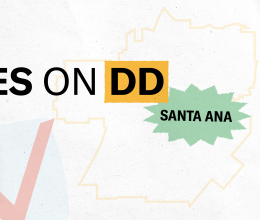
Via the ACLU, a California superior court has blocked Huntington Beach from enacting a 2023 resolution barring minors from accessing library materials containing sexual content. Technically, the ordinance was invalidated by a June ballot measure, the ACLU explains, but the resolution had remained in effect until this court order.
“We appreciate that the court protected minors’ access to a diverse range of library materials they need to learn about the world around them and to participate in a democratic society,” said Jonathan Markovitz, senior staff attorney at the ACLU Foundation of Southern California.
What Texas Is Losing By Banning Books

From the San Antonio News Express, a nice editorial on the impact of the state's new book banning law, SB 13.
"Senate Bill 13 empowers either school boards or a small minority of parents—rather than librarians—with oversight over the materials in school libraries. While this new law makes it far easier to remove books from school libraries in the name of parental rights, it has also led any number of teachers to simply do away with classroom libraries, which are potentially subject to the same standards and review," the article states. "It’s understandably too much of a hassle for overburdened educators to catalog classroom library materials to ensure they align with school libraries, provide parents with a list of titles as well as ways to restrict access to those titles; and even if all that were manageable, it’s too much of an invitation for political harassment."
Arizona Libraries Target Books with Sexual Content

"More than 50 sex-ed and puberty books were quietly removed from kids' sections at 12 libraries across Maricopa County this summer after complaints from conservative Christian activists and residents," reports The Arizona Republic.
"The county Board of Supervisors directed the changes in response to concerns that had long existed for a small faction of grassroots activists but took on new fervor after the 2024 election—when voters installed three new Republican members of the board. The supervisors also decided to allow parents to place restrictions on certain titles their kids can check out" the article notes. "The change is similar to actions in other states that repeatedly were struck down as unconstitutional for violating the public's First Amendment right to access information without government suppression. Proponents of the relocation, however, believe it is protected by their First Amendment religious rights."
ALA Announces Date, Location for Youth Media Awards
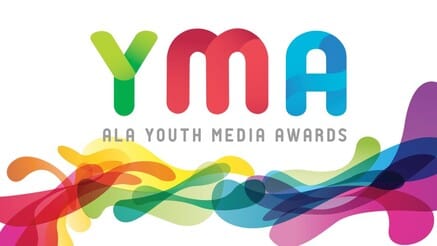
The American Library Association (ALA) has announced that the Youth Media Awards, which includes the Caldecott, Coretta Scott King, Newbery and Printz awards will be held on Monday, January 26 beginning at 10 a.m. (CT) at the Hilton Chicago hotel (720 S. Michigan Ave, Chicago, IL 60605). The event will be free and open to the public, but registration will be required for in-person attendance. Registration will open in December 2025. The announcement will also be live streamed at ala.unikron.com and on the ALA Facebook page (no registration required).
Breaking Down the Anthropic Settlement

Dave Hansen at the Authors Alliance has been sharing some great insights on the pending Anthropic settlement, including this post on what the settlement is, or isn't.
"Perhaps the most important takeaway from all this is what this settlement is not: this settlement doesn’t establish new precedents for AI training or create ongoing licensing obligations for Anthropic. It simply resolves liability for past conduct involving the LibGen and PiLiMi datasets, leaving the broader legal landscape around AI training largely unchanged," Hansen writes. "The real test will come in the implementation details—particularly the Plan of Allocation that emerges from the Author-Publisher Working Group."
In another post, Hansen, with the help of Charles Horn, a "self-described metadata wrangler," breaks down the books that may be covered in the settlement. The thing that jumped out at me: the settlement looks like a potential windfall for some major publishers, depending on their copyright ownership in potentially covered titles.

Brewster Kahle on AI, Libraries, and the Future of the Internet

Via the EFF and its great series “How to Fix the Internet,” an excellent, wide-ranging audio talk with Internet Archive founder Brewster Kahle. It's well worth a listen, but there's a transcript as well.
"If we do it well, if we do it with public AI that is respectful, we have the opportunity for engaging people and in a more deep way, to be able to have them get to literature that has been packed away, and we've spent billions of dollars in the library system over centuries going and building these collections that are now going to be accessible, not just to the reference librarian, not just to researchers, but to kind of anybody," Kahle observes.
More Bad News on the State of Reading in America
From The New York Times, more worrisome news about the state of reading in America.
"The reading skills of American high school seniors are the worst they have been in three decades, according to new federal testing data, a worrying sign for teenagers as they face an uncertain job market and information landscape challenged by A.I.," the report states. "The results, from the National Assessment of Educational Progress, long regarded as the nation’s most reliable, gold-standard exam, showed that about a third of the 12th-graders who were tested last year did not have basic reading skills."
Why School Librarians Are Essential

Via, Chalkbeat, a great student editorial about the impact of a school librarian and his banned books club.
"At a time when reading for pleasure, or even for school, can feel like a low priority, when library programs are losing funding, and when so many campuses lack dedicated librarians, the libraries like ours—and librarians like Mr. Biddle—are invaluable," the authors write.
And Finally This Week...
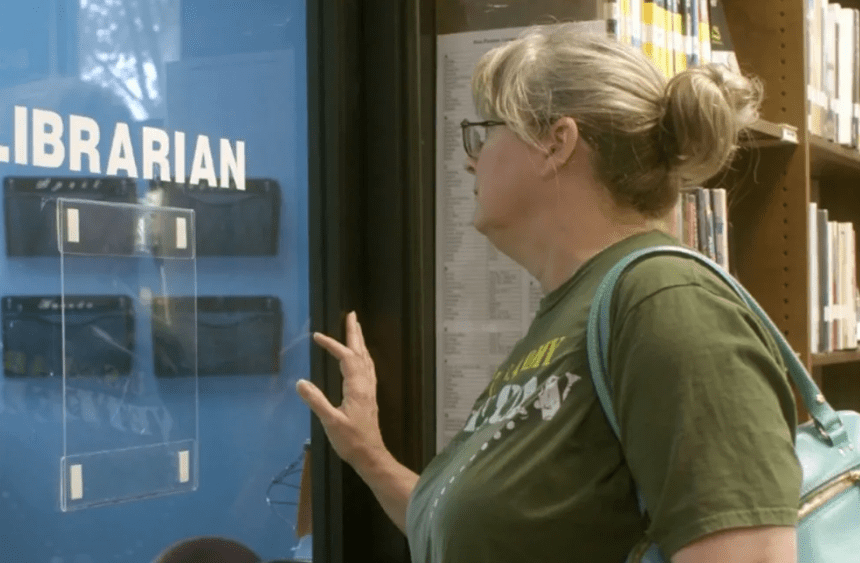
Via the Hollwood trade Variety, news that The Librarians, a documentary about librarians in Granbury as they fight against book bans, will get a wide release. For more information and to get tickets or set up a screening check out the film's website.

"The film is scheduled for a two-week run at the Film Forum in New York, starting on Oct. 3, and a week in Los Angeles beginning Oct. 10 at the Laemmle Royal, followed by a national rollout led by 8 Above in over 40 cities across the country," Variety reports. "The tour will also include special screenings and town hall conversations in partnership with local libraries and community groups in regions nationwide that are affected by censorship efforts."
And check out the trailer, which dropped this week and is going viral online:












